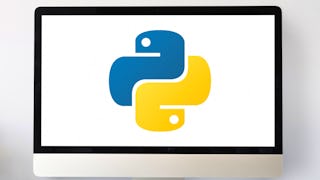![[Featured Image] After earning game development degrees, two game designers work on a video game featuring virtual reality.](https://images.ctfassets.net/wp1lcwdav1p1/4li2S6EZWWn7jCmiC6vP0Y/f169064be3c599ba8cbe6bf76b10b3d4/GettyImages-1442990951.jpg?w=330&h=216&q=60&fit=fill&f=faces&fm=jpg&fl=progressive)
Game Development Degrees and Alternatives in 2026
Explore the options you will have with a game development degree, such as video game development and design, by reviewing the educational requirements to start a career in the field.
October 7, 2024
Article

![[Featured Image] A coworker sits at a table working with a device driver on their computer.](https://images.ctfassets.net/wp1lcwdav1p1/70SBhEO5jeTEG8vsRC0M6Y/07065ec1e6abb9aa776f31601bed4925/GettyImages-1432827713.jpg?w=330&h=216&q=60&fit=fill&f=faces&fm=jpg&fl=progressive)
![[Featured Image] Learners in a computer science class attend a lecture about Linux vs. Windows as they explore various operating systems’ benefits and uses.](https://images.ctfassets.net/wp1lcwdav1p1/5yl5l072lQLDuYwu35mpMe/4cf3c4d08bafc4fc672afbe896a8da2b/GettyImages-468795290.jpg?w=330&h=216&q=60&fit=fill&f=faces&fm=jpg&fl=progressive)


![[Featured image] A computer engineer is coding on two computer screens.](https://images.ctfassets.net/wp1lcwdav1p1/77sN0XPROsp5KsHX0eg7d8/042c772b6dcb00daa2844f73cebb499e/GettyImages-1159379067.jpg?w=330&h=216&q=60&fit=fill&f=faces&fm=jpg&fl=progressive)
![[Featured Image] A young person and their professor walk down a hallway and discuss potential computer science fields they can explore.](https://images.ctfassets.net/wp1lcwdav1p1/77lKPuXomvRQI72BjLDZOZ/8067bf825d361bdcef0c42db3e77754e/GettyImages-1455700207.jpg?w=330&h=216&q=60&fit=fill&f=faces&fm=jpg&fl=progressive)
![[Featured Image] A fintech engineer works on their code on a laptop to ensure the organization's digital banking platform runs smoothly.](https://images.ctfassets.net/wp1lcwdav1p1/6rwnGD76NmCaUV767Vg9wh/2d60bda2bed3f69e816325d2509bb82a/GettyImages-1170488210.jpg?w=330&h=216&q=60&fit=fill&f=faces&fm=jpg&fl=progressive)
![[Featured Image] A person wearing a headset is on their laptop and answers phones at an IT call center.](https://images.ctfassets.net/wp1lcwdav1p1/1vKY1CjuDtn8KkJQvjXdQD/dd2babaed89c6007e3d2e03ae8fbbd68/GettyImages-1366016964.jpg?w=330&h=216&q=60&fit=fill&f=faces&fm=jpg&fl=progressive)
![[Featured image] Two front-end developers are working together while looking at a desktop.](https://images.ctfassets.net/wp1lcwdav1p1/7kBRPlWslHXWb0YxEYcAaL/09908091b285b267b5e7b1accf90a6c8/GettyImages-1487035057.jpg?w=330&h=216&q=60&fit=fill&f=faces&fm=jpg&fl=progressive)
![[Featured image] A front-end developer is in an office working on their laptop with earbuds on.](https://images.ctfassets.net/wp1lcwdav1p1/Mpo9KCpV01kcXsMz66VGG/c6e5a8a9ff12debacddfbcdee1368d2a/GettyImages-1442021051.jpg?w=330&h=216&q=60&fit=fill&f=faces&fm=jpg&fl=progressive)
![[Featured Image] Two students earning a computer science degree are sitting together and studying while looking at their computers.](https://images.ctfassets.net/wp1lcwdav1p1/7AHFIY0gQpIvuT2t16fvub/0cf4e955d683567e3560289de084a26b/iStock-543443692.jpeg?w=330&h=216&q=60&fit=fill&f=faces&fm=jpg&fl=progressive)
![[Featured image] A Coursera learner is sitting on an office desk.](https://images.ctfassets.net/wp1lcwdav1p1/6uS5CfNkkPV636o20PYTGc/a284a9b0f9d3265f4b5dbea3413367a5/GettyImages-1437209114.jpg?w=330&h=216&q=60&fit=fill&f=faces&fm=jpg&fl=progressive)
![[Featured image] A computer scientist is working on their computer.](https://images.ctfassets.net/wp1lcwdav1p1/2Q1X0d3l5obcLhCYPZzZ4B/29683f74cd1cfaaf1763d6b8cdb423da/gSpFa7n3.jpeg?w=330&h=216&q=60&fit=fill&f=faces&fm=jpg&fl=progressive)
